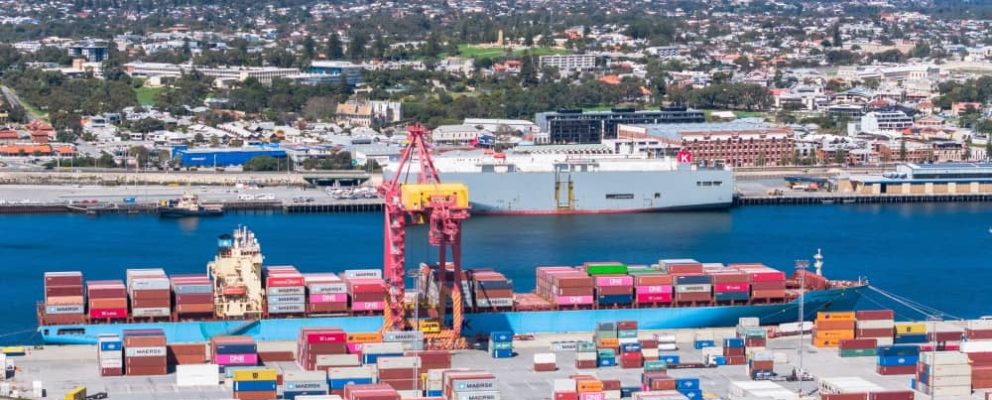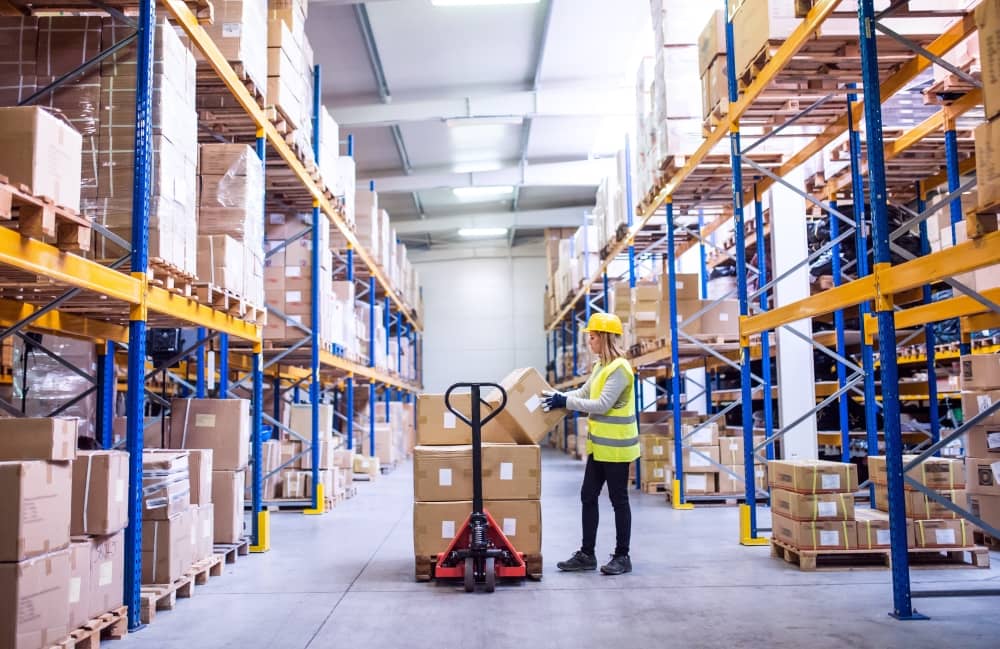In an increasingly globalised marketplace, the logistics sector in Perth, Western Australia, is experiencing a transformative shift towards more efficient, secure, and sustainable transport solutions. Container transport, a cornerstone of modern logistics, stands out as a remarkably versatile and effective method for shipping goods across vast distances.
This guide delves into the myriad benefits of container transport, highlighting its pivotal role in enhancing logistic operations and meeting the dynamic needs of global trade.
Quick Summary:
- Enhanced Efficiency: Streamlines shipping processes by reducing handling times.
- Cost-Effectiveness: Lowers overall transportation expenses.
- Improved Cargo Security: Offers a secure environment for transported goods.
- Versatility in Cargo Handling: Accommodates a wide range of cargo types.
- Sustainability Benefits: Promotes greener logistics through efficient space use and reduced carbon emissions.
- Streamlined Customs Clearance: Facilitates faster transit through customs.
- Global Reach: Enables easy access to international markets.
- Scalability: Easily adjusts to changing demand in cargo volume.
Benefits of Container Transport Services
Enhanced Efficiency
Containerisation introduces unparalleled efficiency in logistics operations. By facilitating smooth transitions between different transport modes—sea, rail, and road—without the need to unload the cargo, it significantly cuts down on transit times. This efficiency is crucial for Perth’s logistics providers, ensuring timely deliveries and maintaining competitive service levels.
Why this matters:
- Reduces Handling Times: Minimising the need for loading and unloading goods between transport modes cuts down operational delays, crucial for meeting tight delivery schedules.
- Intermodal Transport Ease: The ability to smoothly transition between sea, rail, and road without repackaging facilitates faster global and domestic supply chains, essential for businesses that depend on the timely distribution of products.
Cost-Effectiveness
The consolidation capabilities of container transport allow for substantial savings on packaging, handling, and storage costs. By standardising cargo into containers, logistics companies can optimise their shipments, ensuring more goods are moved for less, which is particularly beneficial in reducing the overheads for Perth’s logistics sector.
Why this matters:
- Lower Transportation Costs: Consolidation of goods into containers optimises space, reducing the cost per unit shipped, a significant advantage for businesses looking to economise on shipping.
- Reduction in Packaging and Storage Expenses: The durable nature of containers lessens the need for extensive packaging and decreases warehousing costs, beneficial for logistics providers aiming to maximise profit margins.
Improved Cargo Security
Containers are designed to be highly secure, providing robust protection against theft, loss, and environmental damage. This level of security is indispensable for maintaining the integrity of goods in transit, thereby bolstering client trust and reliability in the logistics services offered in Perth.
Why this matters:
- Enhances Goods Protection: Robust container designs protect against theft, loss, and environmental damage, ensuring product integrity upon delivery—a key factor for maintaining customer trust and satisfaction.
- Reduces Insurance Premiums: The increased security of containerised transport can lead to lower insurance costs for shipping goods, an important consideration for businesses managing risk and overheads.
Versatility in Cargo Handling
The ability to handle a diverse range of goods—from perishables and hazardous materials to bulky equipment—makes container transport a versatile solution for Perth’s logistics companies. This flexibility supports the industry’s capacity to meet varied client requirements, enhancing service offerings.
Why this matters:
- Accommodates Various Cargo Types: The capability to transport a diverse array of goods, from bulk commodities to fragile items, allows logistics providers to serve a broader client base.
- Facilitates Specialised Logistics Solutions: Containers adapted for specific needs, such as refrigerated goods, provide bespoke solutions for industries reliant on the safe transport of sensitive products, expanding service offerings.
Sustainability Benefits
Container transport contributes to more sustainable logistics practices by enabling more efficient use of space and facilitating the shift towards less carbon-intensive transport modes, like rail and sea. For a city like Perth, with its growing focus on environmental sustainability, this aspect of container transport aligns with broader goals to reduce the logistics sector’s carbon footprint.
Why this matters:
- Promotes Environmental Responsibility: Efficient space use and the facilitation of greener transport modes contribute to reduced carbon emissions, aligning with corporate sustainability goals.
- Enhances Public and Corporate Image: Adopting sustainable logistics practices can improve a company’s image, appealing to environmentally conscious consumers and stakeholders.
Streamlined Customs Clearance
The standardisation and security features of containers simplify the customs clearance process, allowing for quicker border crossings. This efficiency is crucial for reducing the potential for delays, ensuring that Perth’s logistics providers can offer predictable and reliable shipping times.
Why this matters:
- Faster Border Processing: Containers can be easily inspected and processed through customs, reducing wait times and the risk of delays—a critical advantage for time-sensitive shipments.
- Predictable Delivery Timelines: Efficient customs clearance enhances the reliability of delivery schedules, supporting businesses in maintaining inventory levels and fulfilling customer orders promptly.
Global Reach
Container transport is integral to international trade, providing Perth’s logistics sector with the infrastructure needed to access global markets efficiently. This global connectivity is essential for businesses looking to expand their reach beyond local markets.
Why this matters:
- Facilitates International Trade: The universal standardisation of containers simplifies the process of shipping goods internationally, essential for businesses looking to expand their market reach.
- Access to New Markets: The ability to efficiently transport goods worldwide opens up opportunities for businesses to explore new markets and sourcing options, driving growth and diversification.
Scalability
The scalability of container transport allows logistics providers to adjust their operations according to fluctuating demand. This adaptability is vital for managing seasonal variations in cargo volume, enabling Perth’s logistics companies to maintain efficiency regardless of market conditions.
Why this matters:
- Adapts to Business Growth: The scalability of container transport allows companies to easily adjust shipment volumes in response to business needs, supporting expansion without the need for significant logistical adjustments.
- Responsive to Market Demands: The flexibility to scale logistics operations up or down enables providers to efficiently manage seasonal fluctuations and changing market trends, ensuring service continuity and competitiveness.
FAQs
Q: How does container transport enhance operational efficiency?
A: Container transport enhances operational efficiency by allowing for seamless transitions between different modes of transportation, reducing handling times, and enabling the consolidation of goods, which speeds up the shipping process and reduces logistical complexities.
Q: Can container transport handle all types of cargo?
A: Yes, container transport is highly versatile and can accommodate a wide range of cargo types, including perishables, hazardous materials, and oversized items, making it a comprehensive solution for diverse logistic needs.
Q: How does container transport contribute to sustainability?
A: Container transport contributes to sustainability by promoting more efficient use of space on transport carriers, reducing the need for multiple handling and packaging materials, and facilitating the use of greener transport modes like rail and sea, which have a lower carbon footprint compared to road transport.
Q: Is container transport cost-effective for small businesses?
A: Yes, container transport is cost-effective for businesses of all sizes. The consolidation of goods into containers reduces transportation costs, and the efficiency and security offered by containerised shipping can lead to significant savings on logistics expenses.
Conclusion
Container transport presents a multitude of benefits for the logistics sector in Perth, driving efficiency, security, and sustainability in the movement of goods. Its role in facilitating global trade, alongside its adaptability to various cargo types, underscores its importance in meeting the contemporary demands of the logistics industry. As the sector continues to evolve, the strategic adoption of container transport will remain a key factor in its success.







